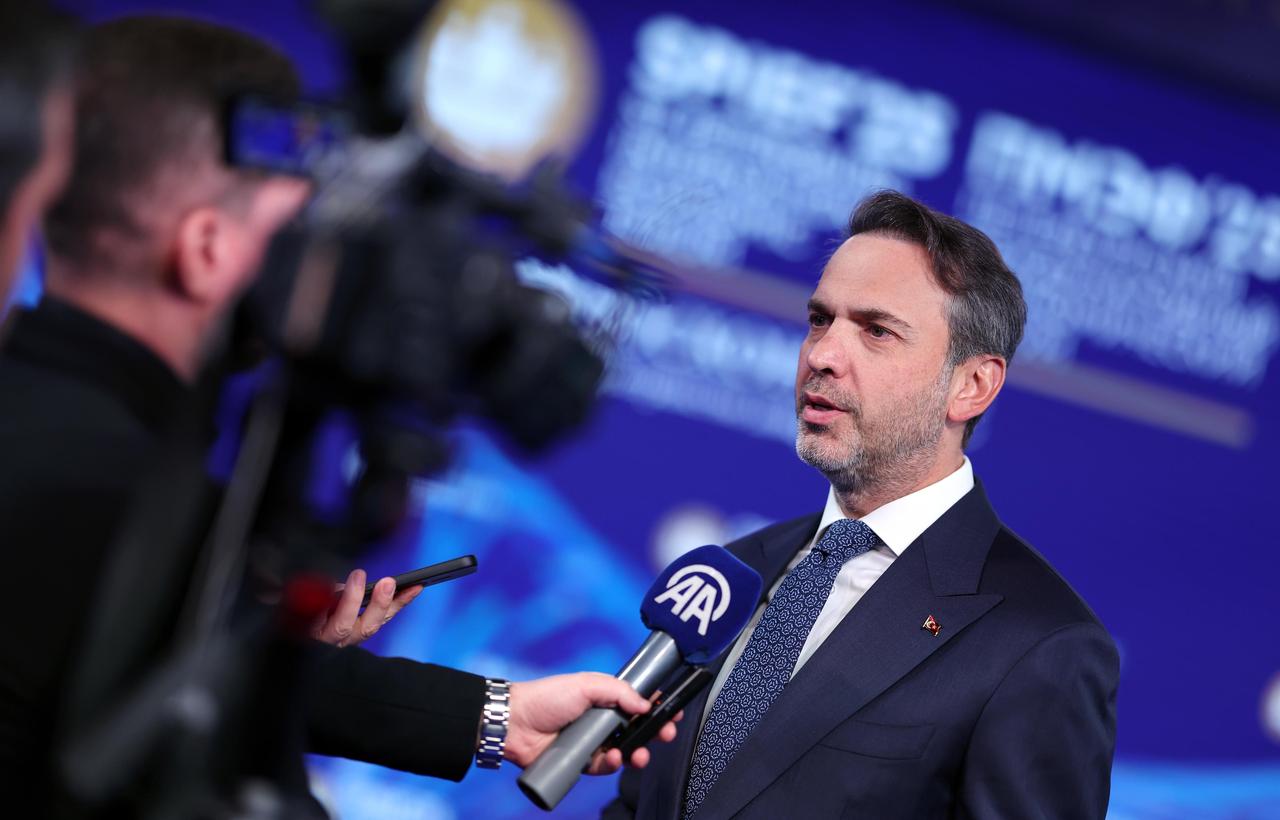
Türkiye is accelerating its efforts to diversify energy sources as geopolitical tensions rise in the Middle East, particularly in light of the ongoing Israel-Iran conflict, Energy and Natural Resources Minister Alparslan Bayraktar said on Saturday.
Minister Bayraktar underlined that Türkiye’s energy sector remains robust and well-prepared, despite regional instability.
Speaking during his visit to the St. Petersburg International Economic Forum (SPIEF) on Saturday, Bayraktar stated that natural gas deliveries from Iran to Türkiye continue without interruption, emphasizing that the country has not experienced any supply issues.
Iran currently supplies around 10% of Türkiye’s natural gas imports.
In March alone, Türkiye imported 561 million standard cubic meters (equivalent to 19.81 billion standard cubic feet) of natural gas from Iran, representing a 126% year-on-year increase. This also reflects the broader trade relationship between the two countries, with total bilateral trade surpassing $14 billion in 2024.
Bayraktar noted that Türkiye is actively working to strengthen its energy security by stepping up storage efforts during the summer months, when gas consumption tends to be lower.
He explained that the government is focused on filling reserves now to ensure adequate supply during the winter season.
He also added that these measures are being implemented with greater urgency due to the current geopolitical risks.

In a broader assessment of Türkiye’s energy partnerships, Bayraktar emphasized the country’s longstanding relationship with Russia.
He noted that Russia continues to be one of Türkiye’s key suppliers not only in natural gas and oil but also in nuclear energy, coal, and liquefied petroleum gas (LPG).
He stated that Türkiye intends to maintain and expand this cooperation in the coming years.
Bayraktar added that the meetings held in St. Petersburg served as a valuable platform for reviewing the status of existing projects and exploring future collaboration with Russian officials. He highlighted the significance of SPIEF in fostering dialogue on global energy developments and Türkiye’s role within that landscape.

The minister acknowledged that the global energy sector has endured a series of shocks over the past five years, including the COVID-19 pandemic, the Russia-Ukraine war, and disruptions in global supply chains.
He pointed out that these events have driven price volatility and prompted countries to adopt more protectionist and financially restrictive policies. The latest development—growing tensions in the Middle East—adds another layer of uncertainty that could impact macroeconomic stability and regional energy flows.
Despite these challenges, Bayraktar expressed confidence in Türkiye’s ability to withstand external shocks, noting that the country has managed to navigate similar crises in recent years. He reiterated that energy markets in Türkiye remain strong and adaptive.
Regarding the potential market impact of Middle East tensions, Bayraktar said that while price increases and volatility have already emerged, he does not expect a large-scale disruption.
He stressed that the government is monitoring developments closely but believes that more extreme or chaotic scenarios are unlikely at this stage.
He concluded by underlining Türkiye’s readiness to handle future uncertainties and stated that the country continues to prioritize supply security through proactive policy measures and diversified partnerships.